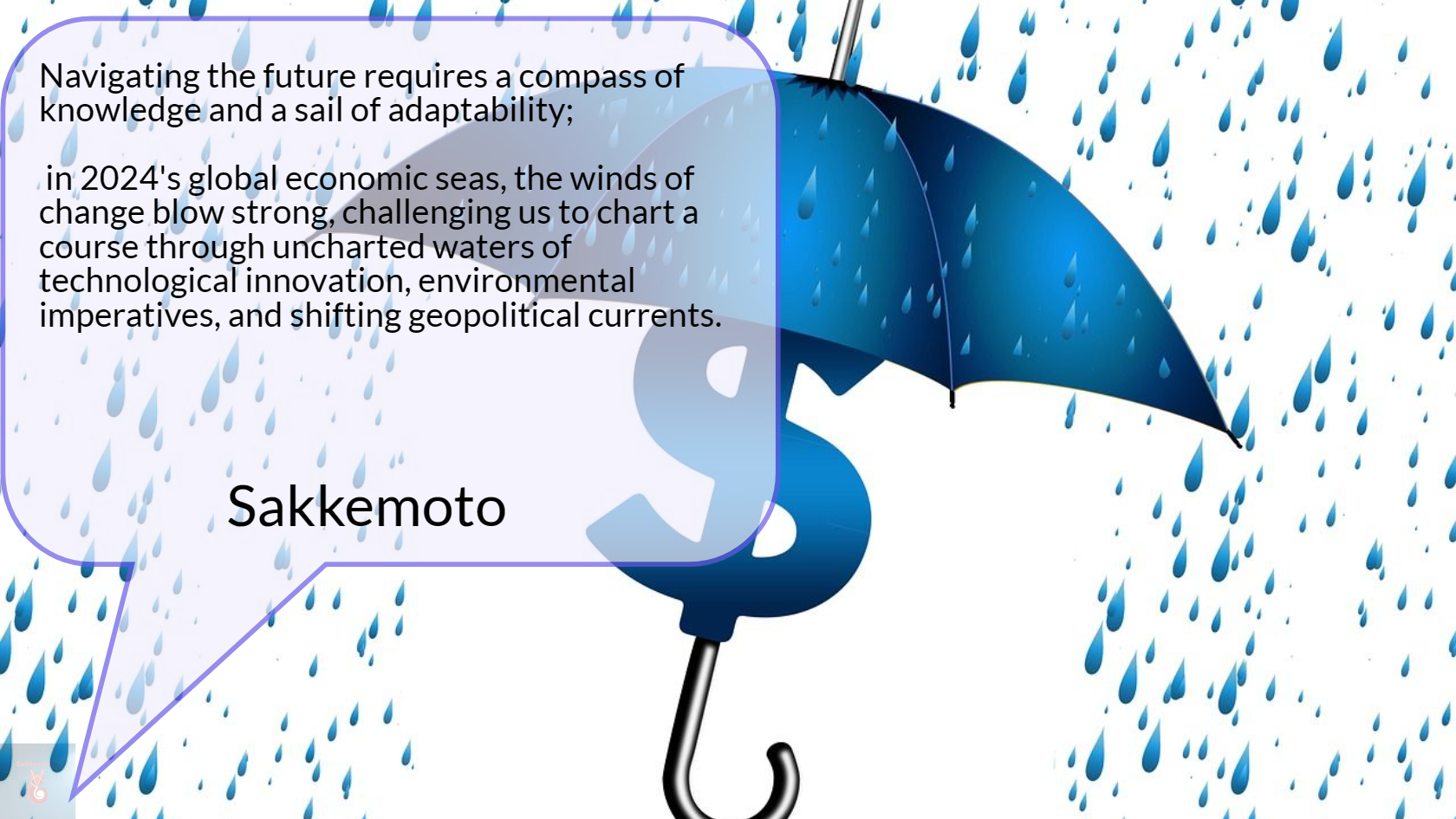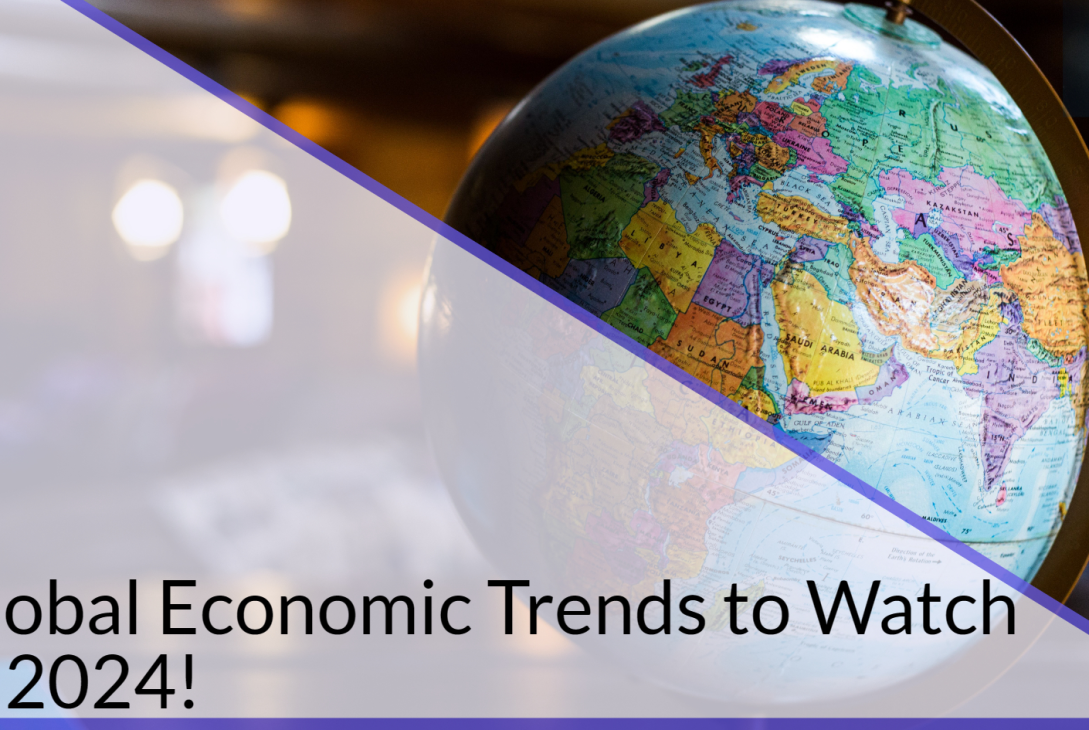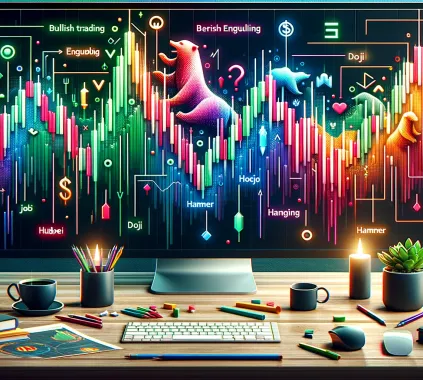Page Contents
Global Economic Trends in 2024 are rapidly changing and growing more complex as we progress into the year.Influenced by a combination of recent global events, such as the far-reaching impacts of the COVID-19 pandemic, advancements in digital technology, and significant geopolitical developments, the global economy is at a pivotal point.
Global Economic Trends
This comprehensive and in-depth blog post aims to dissect and examine the key economic trends that are poised to shape the global economic environment in 2024. Whether you’re a business leader, policymaker, or an individual seeking to grasp the nuances of these changes, this exploration into the rise of emerging markets, the disruptive influence of technological innovations, and the evolving patterns of international trade will provide valuable insights.
Emerging Markets and Their Growing Influence
In 2024, emerging markets are expected to continue their trajectory as critical engines of global economic growth. These countries, including powerhouses like India, China, and Brazil, are undergoing significant economic transformations:
1.Economic Diversification and Growth: Moving beyond traditional agricultural and manufacturing bases, these nations are embracing technological innovation and service-oriented industries, contributing to a more diversified and robust economic structure.
2.Youthful Populations Fueling Growth: The youthful demographics in these countries are a vital factor, contributing to a large, dynamic workforce and an expanding consumer market that drives domestic consumption and economic activity.
The global trade environment in 2024 is marked by significant shifts
3.Urbanization and Modern Infrastructure: Rapid urbanization and investments in modern infrastructure are creating new economic hubs and opportunities, further stimulating economic growth and development.
4.Overcoming Obstacles: However, these regions also face significant challenges, such as addressing income disparities, managing environmental concerns, and navigating political uncertainties, which could impact their growth trajectories.
Technology’s Role in Shaping Economies
The transformative impact of technology on the 2024 global economy cannot be overstated:
- The Automation Revolution: Automation and artificial intelligence are redefining the future of work. These technologies are streamlining operations across industries but also pose challenges in terms of workforce displacement and the need for significant upskilling and reskilling.
- Breakthroughs in Healthcare and Biotech: The intersection of technology and healthcare is producing groundbreaking advancements, particularly in personalized medicine and digital health solutions, leading to improved health outcomes and creating new market niches.
- Green Technology and Sustainability: The global push towards sustainability is driving innovation in green technologies, which are vital not only for environmental reasons but also for economic growth, opening up new markets and business models in renewable energy and eco-friendly practices.
- Navigating Regulatory and Ethical Landscapes: As technology permeates every aspect of modern life, addressing issues of data privacy, the digital divide, and the ethical implications of technologies like AI becomes increasingly crucial.
Shifts in Global Trade Dynamics
The global trade environment in 2024 is marked by significant shifts:
- Changing Nature of Trade Agreements: New trade agreements and partnerships are altering traditional economic alliances, requiring businesses and governments to adapt to these new trade frameworks and opportunities.
- Digital Commerce Reshaping Trade: The explosive growth of e-commerce and digital services is transforming the nature of international trade, necessitating adjustments in global logistics, payment systems, and regulatory frameworks to accommodate these changes.
- Sustainable and Ethical Trade Becoming a Norm: There is a growing trend towards sustainable and ethical trade practices, influenced by consumer demand and regulatory mandates, which is reshaping global supply chains and business strategies.
Global Economic Governance
The evolving economic landscape is prompting significant changes in global economic governance:
- Institutional Adaptation and Reform: In light of the changing economic realities, global economic institutions such as the IMF, World Bank, and WTO are undergoing reforms to better address the needs and challenges of a more diverse range of economies.
- Rise of Digital Currencies and Financial Innovation: The emergence of digital currencies and fintech is redefining the financial landscape, necessitating innovative regulatory responses to these new financial technologies.
- Addressing Economic Inequality: The increasing focus on economic inequality is driving global efforts towards more inclusive growth policies and equitable economic practices.
The Role of Geopolitics in Economics
The interplay between geopolitics and the global economy is becoming more pronounced:
- Emergence of New Economic Powers: The rise of emerging economies is shifting the traditional economic power balance, leading to a more multipolar economic world.
- Security Concerns Influencing Economic Stability: Global security issues, such as cybersecurity threats and regional conflicts, are increasingly intertwined with economic stability, necessitating strategic responses.
Conclusion Global Economic Trends
Approaching 2024, we see a global economic landscape increasingly marked by a diversity of emerging trends and complex challenges.These elements are collectively contributing to a dynamic and ever-evolving economic narrative, one that is significantly different from what we have known in the past. The rise of emerging markets, the transformative power of technology, and the evolving nature of global trade actively interconnect, collectively reshaping the global economic fabric.
Understanding these developments is not just beneficial but essential for anyone looking to navigate the complexities of the global economy. Whether you are a business leader formulating strategies for international expansion, a policymaker crafting economic policies, or an individual investor making decisions about where to allocate resources, a deep understanding of these trends is critical.
The era of rapid economic change that we are currently experiencing presents a unique set of opportunities and challenges. On one hand, the rise of emerging markets offers new avenues for growth and investment. These regions, with their burgeoning middle classes and rapidly developing infrastructures, present untapped potential for businesses and investors alike. On the other hand, the disruptive nature of technological advancements, while opening doors to innovation and efficiency, also brings challenges in terms of job displacement, the need for new skills, and ethical considerations around data use and privacy.
Global Economic Trends
Moreover, the evolving dynamics of global trade, influenced by shifts in geopolitical power and changing consumer preferences, require businesses and governments to be more agile and adaptable than ever before. The growing emphasis on sustainability and ethical practices in trade means that companies must rethink their supply chains and business models to align with these new priorities.
Navigating these changes effectively requires more than just awareness;
it demands adaptability and a willingness to embrace new ideas and approaches. It calls for a mindset that is open to innovation and resilient in the face of uncertainty. Organizations and individuals prepared to adapt and proactively shape their responses to emerging trends will thrive in 2024

The future of the global economy is, indeed, a narrative of adaptation, innovation, and resilience. It is a story of how businesses, governments, and individuals respond to and capitalize on the changes unfolding around them. Those best prepared to understand, respond to, and influence these changes will succeed and thrive in the exciting, unpredictable world of 2024.
As we look towards this future, the key to success lies in our ability to anticipate these changes, understand their implications, and take proactive steps to turn challenges into opportunities. The global economic landscape of 2024 is not just a story of economic trends; it is a canvas for innovation, strategic thinking, and forward-looking leadership.
2024 economy financial freedom marketing money online business self improvement
Last modified: 23 February 2024









[…] sculpting a future where blockchain’s potential is fully realized, benefitting industries, economies, and societies at […]